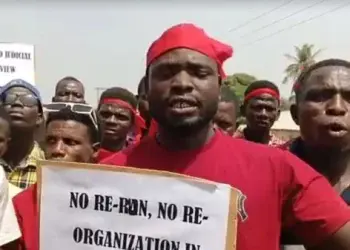Are online prayer meetings genuine spiritual shifts or a response to rising joblessness? Explore the connection between digital faith and unemployment.
It’s 2am and Ghana should be asleep, except a few nocturnal creatures plying their trade as fleshmongers, internet romance scammers, and armed robbers.
There are also troubled souls bogged down by the harsh realities of life, and have resigned to sleeplessness as a natural remedy to unemployment, poverty, and house rent arrears.
On the other side, Christians, pseudochristians and gentle free-spirits are praying before laptops, tablets, and smartphones with millions around the world, forming digital congregations scattered on church online prayer platforms.
Mercy for internet data
They stay up deep into the night, sometimes till daybreak, beseeching the Heavens to intervene in the many troubles of people who seem to be paying a punitive price for mere existence.
If you stumbled onto any of these prayer platforms without invitation, you might think participants had borrowed the symptoms of other people’s problems for God’s attention.
From marriage troubles to breakthroughs in employment, a digital God is submerged in a sea of prayer requests for answers, as they speak in various tongues and posh English to seek material favours from realms unknown to men of little faith.
The energy is infectious, and they don’t get tired.
There is a clear structure to the format of proceedings, but it gets noisy, almost cacophonous, as participants slug it out to outpray one another, to get the better part of the Holy Spirit.
Topic by topic, prayer points are tabled for corporate intercession, spiritual fortification and power to conquer the enemy.
Next on the agenda is testimony time, where participants share how God came through for them.
One by one, those exhausted leave the meeting, often without permission.
They retire to their various businesses and meet online the next day to pray.
When prayer is offline, it is expected that patrons of these digital prayer camps are working online as corporate people, business associates, teachers or students.
However, for many, these digital churches are their places of employment.
They stay on for hours because they have no job to go to. When they go offline, their lives are also offline.
They sign on to these digital churches to pray away, fellowship or just keep hope alive.
From Alpha Hour to Jerry Eze’s New Season Prophetic Prayers, and other denominational prayer lines, youthful and intelligent minds have made a whole new religion of ‘digital prayer’.
The discharge of energy and spiritual adrenaline seems to have replaced enterprise and real work.
What God cannot do
On these prayer lines, they are told that what God cannot do does not exist.
The reality, however, is that unemployment exists, and God cannot do it until somebody is prepared to offer a job seeker a job.
In all his omniscient omnipresence and never-ending mercies, God has a poor record of sending job alerts from the computers in Heaven to prayer lines; He has put men in charge of these things on earth, and they require a good CV, not prayer transcripts, to give you one.
A year ago, I resolved to sign on to a few of these digital prayer platforms when my goddaughter in Ghana embarked on an aggressive job search after university.
I worried that she was awake any time I went online to check on happenings in Ghana.
The five-hour time difference between Canada and Ghana meant I expected her to be asleep when I was online in the wee hours. She had been praying online for jobs, and her parents had been alarmed at her sudden loss of weight due to the many hours she spent praying, shouting at the highest decibels.
Her sister, with whom she shared a room, had also complained about the ordeal, which made sleep difficult for her.
She worried that her sister had become an online zombie.
The few times I referred her to some friends for a job, she showed up poorly prepared and tired from the morning’s prayer drill.
While her spirit life may have been reinvigorated with heavy doses of constant communion with God, her CV did not vindicate the monetary value of internet data expended on her digital prayer life.
Her prospective employer reported that while it is understandable that a new graduate might not have relevant job experience, very serious candidates did more than pray.
He narrated the exemplary story of a job seeker who had started a small liquid soap business, refining her grandmother’s recipe to produce her own detergent for plates and utensils. I wish my goddaughter was this smart.
Prayer revolution
Whenever I am online, either listening to sermons or praying on my church’s online platform, I worry about the temptation of falling into ‘overchurching’ or substituting real Koinonia (fellowship with fellow Christians) with a superficial digital experience.
I also worry that while I am online, praying amiss or ‘amass’ into the night, my compatriots in China and South Korea would be coming forth with an ungraded version of the latest electric car, or another smartphone.
I worry about Africa’s place in Robotisation, the fourth industrial revolution, where robots and IT regulate human life.
The earlier revolutions (mechanisation, mass production and automation) didn’t give us much. We might have been praying while they worked.
True, Koanonia is different from what the church used to be in those days.
Things have changed, and the way we do church must reflect the zeitgeist of the internet age.
Miracles are performed online, just as tithes and offerings are paid electronically.
Today, nearly every aspect of our lives is online, and the church cannot afford to pray offline.
So, we have to pray, but not just to make it today, as musician MC Hammer had hoped.
We have to pray–both online and offline–to make it beyond church and prepare to lead the next industrial revolution, not a prayer revolution.
Tissues Of The Issues
bigfrontiers@gmail.com
Ottawa, Canada












